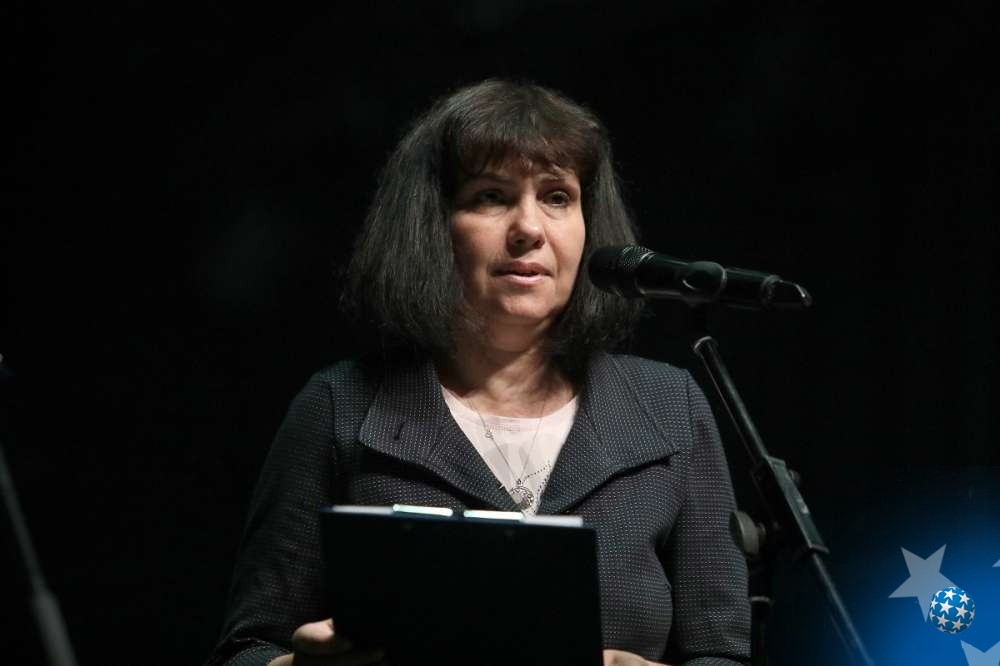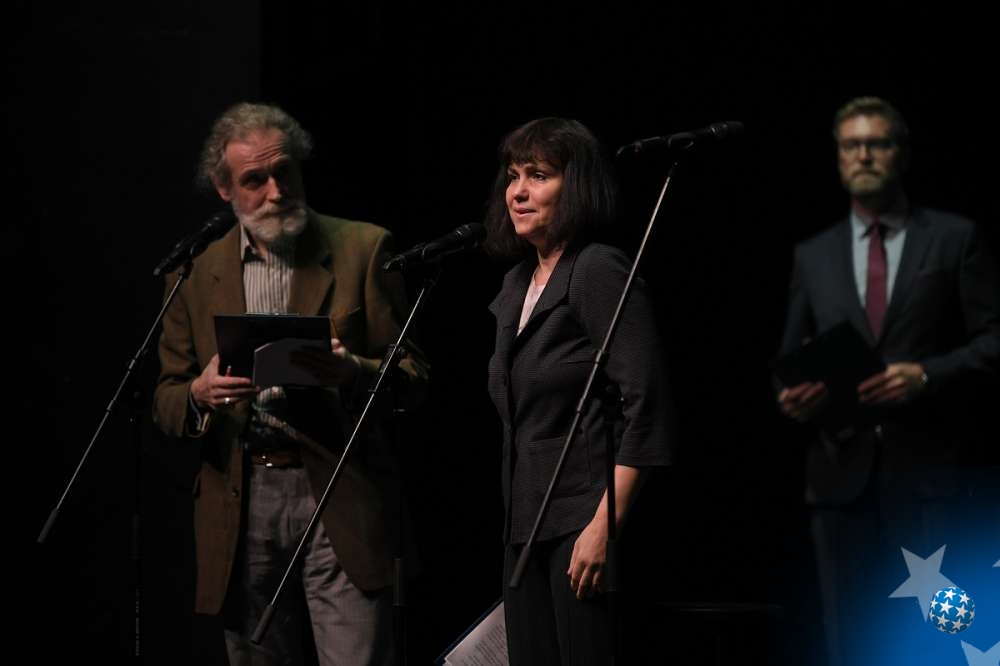I've been coming to BITEF since the second half of the 1990s. I consider it to be one of the most important festivals in Europe, and I've always felt a special affection for Russia and Russian culture here.
It's probably because of this long-standing sympathy between our two countries that I often encounter in Serbia an attempt to justify the foreign policy of my homeland.
Tonight, I want you to try to hear the voice of those millions of Russians who disagree with the current war and to understand why a true love for Russia is incompatible with supporting its actions in Ukraine.
Since all of us in this auditorium belong not to the world of politics, but to the world of culture, I suggest that we put aside the geopolitical aspect of the problem (there are a lot of demagogies that can be piled around this aspect), and look at the current war in Europe through the prism of fine arts.
It is very important to understand that on February 24, Russia attacked not only Ukraine but also declared war on its own culture.
Since long ago, Russia has been a kind of centaur. Its political system resembled Asian despotisms, but its culture and art in its highest achievements have been oriented toward the West.
Even after the Bolshevik Revolution, which took away all the political freedoms of its citizens, the European way of Russian culture was embodied in the leftist avant-garde, which not only existed within European trends but at times defined and anticipated these trends.
The first person to remove this contradiction between politics and culture was Stalin. In the late 1920s, he not only began to systematically destroy the entire avant-garde trend in culture. He cut off Russian culture from the Western world and plunged it into provincial archaicism. By the time he died in 1953, Russian culture has become a scorched desert.
Now history repeated itself.
Until February 24, 2022, I would call Moscow one of the most important cultural European capitals. It had more interesting premieres, exhibitions, concerts, and international festivals than almost any city in the world. After February 24 we can observe in Russia a cultural change comparable to the one that took place under Stalin. And it is happening even more rapidly than it was under Stalin.
The number of directors, stage designers, and playwrights who have left Russia is enormous. All important institutions of contemporary art and contemporary theater have de facto disappeared.
The real beneficiaries of this war within Russia are the obscurantists and mediocrities. Sometimes it seems to me that the war was started not to win on the fronts, but for the internal revenge of those who did not like the very possibility of living in an open world.
After February 24 anyone who looks toward the West and who is internationally acclaimed can easily be declared a traitor, and he will lose his theater, his exhibition hall, his university chair etc.
In fact, Stalin's cultural conservative revolution followed the same pattern. It, too, was a victory of mediocrities. They ruled the ball.
Fascism is always a triumph of mediocrity. And it is precisely this triumph that we are witnessing today in Russia.
In other words, presently, we are witnessing the destruction of not one but two countries.
In one (Ukraine) the infrastructure is consistently and brutally destroyed and people die, and in the other (Russia) what I would call a cultural catastrophe takes place: art, science, education, media, social assistance institutions, etc. are destroyed before our eyes.
When you tend to support the war that Russia is waging because you love Russian culture, think about the fact that culture is one of the worst victims of this war.
I still hope that this will be the last war for Europe, that our cultural ties will not be interrupted, and that Russian theater will return not only to BITEF but also to other international festivals.
I declare the 56th BITEF open.

